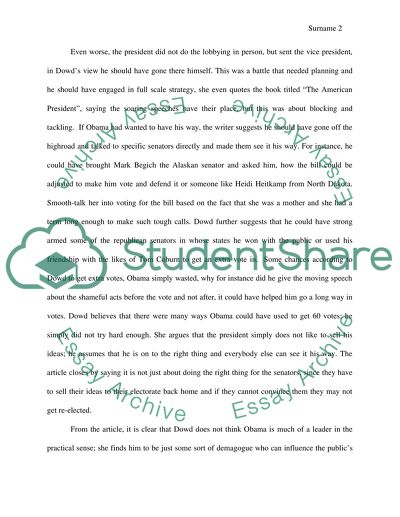Cite this document
(“No Bully in the Pulpit by Maureen Dowd Essay Example | Topics and Well Written Essays - 1250 words”, n.d.)
Retrieved from https://studentshare.org/literature/1475827-no-bully-in-the-pulpit-by-maureen-dowd
Retrieved from https://studentshare.org/literature/1475827-no-bully-in-the-pulpit-by-maureen-dowd
(No Bully in the Pulpit by Maureen Dowd Essay Example | Topics and Well Written Essays - 1250 Words)
https://studentshare.org/literature/1475827-no-bully-in-the-pulpit-by-maureen-dowd.
https://studentshare.org/literature/1475827-no-bully-in-the-pulpit-by-maureen-dowd.
“No Bully in the Pulpit by Maureen Dowd Essay Example | Topics and Well Written Essays - 1250 Words”, n.d. https://studentshare.org/literature/1475827-no-bully-in-the-pulpit-by-maureen-dowd.


